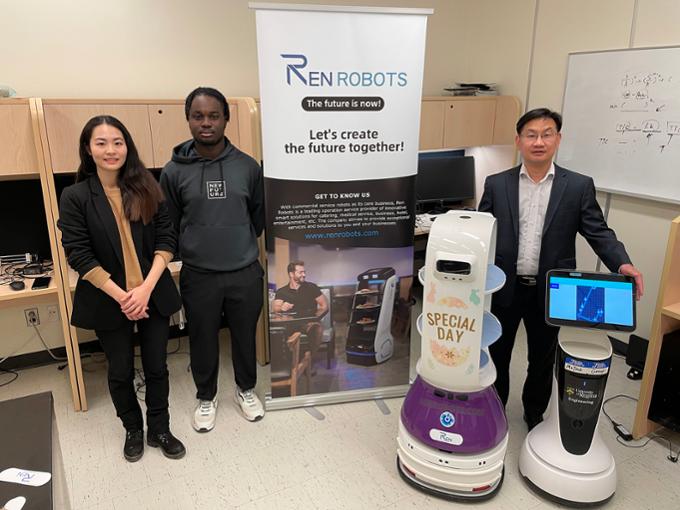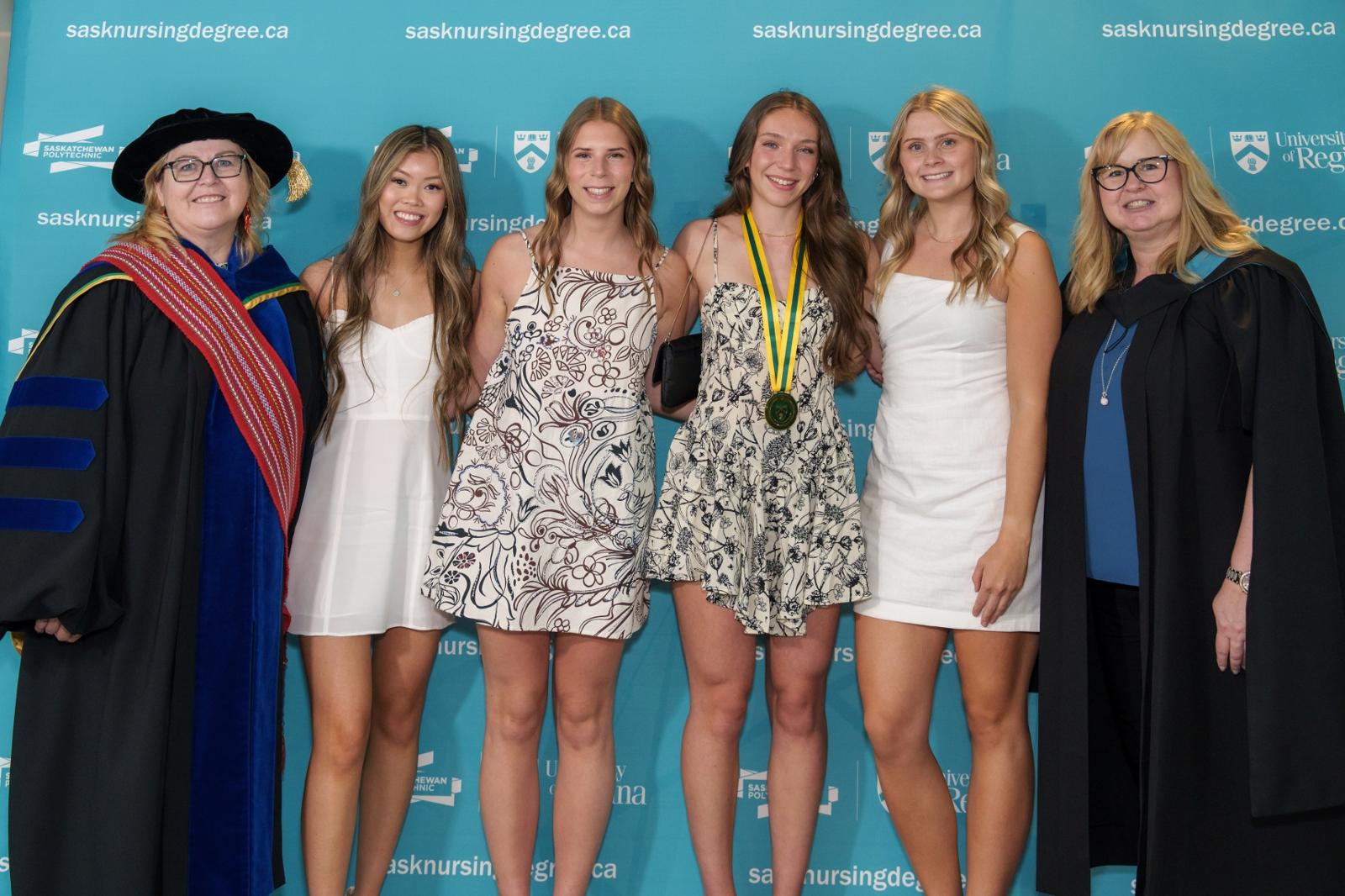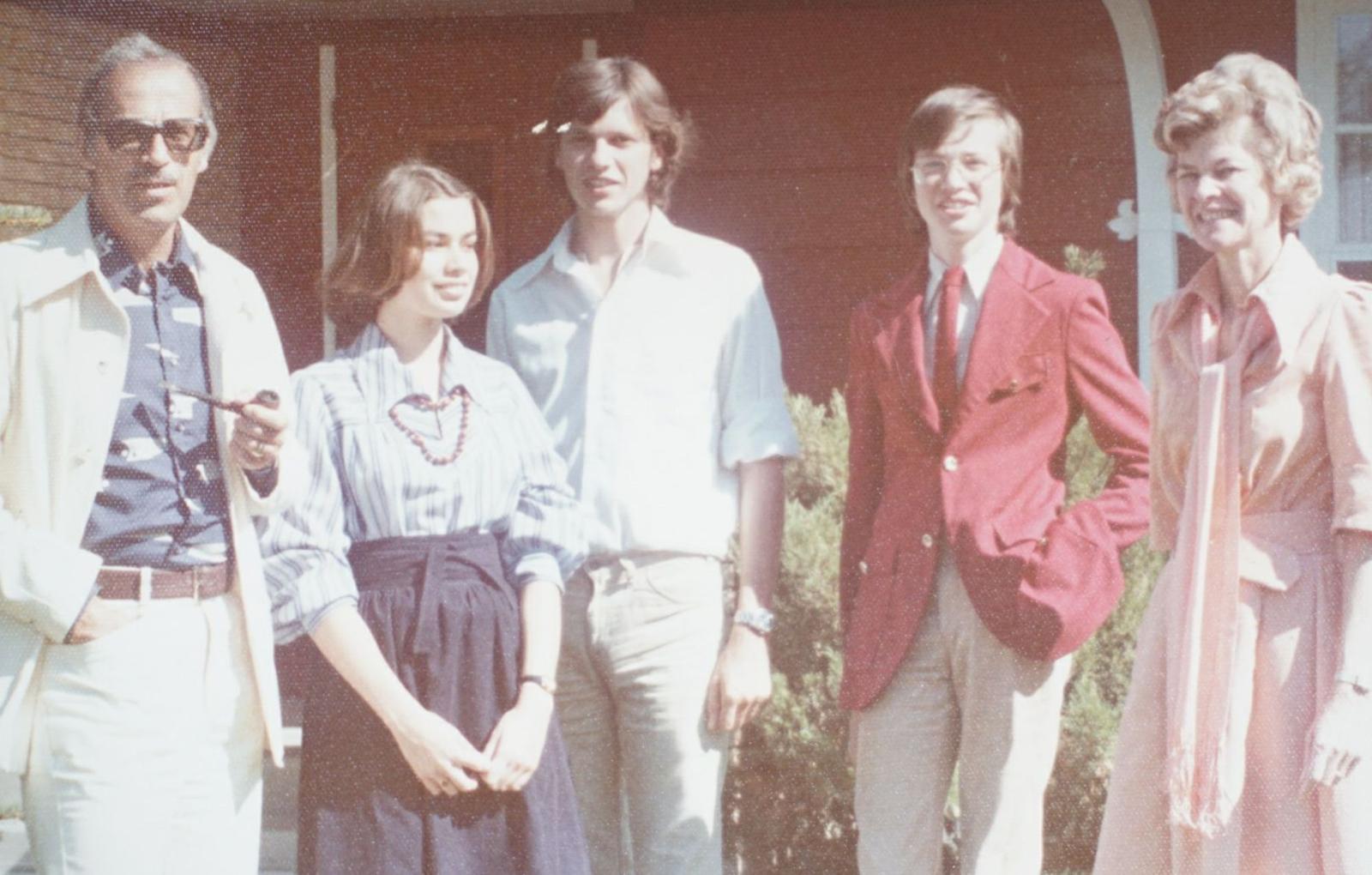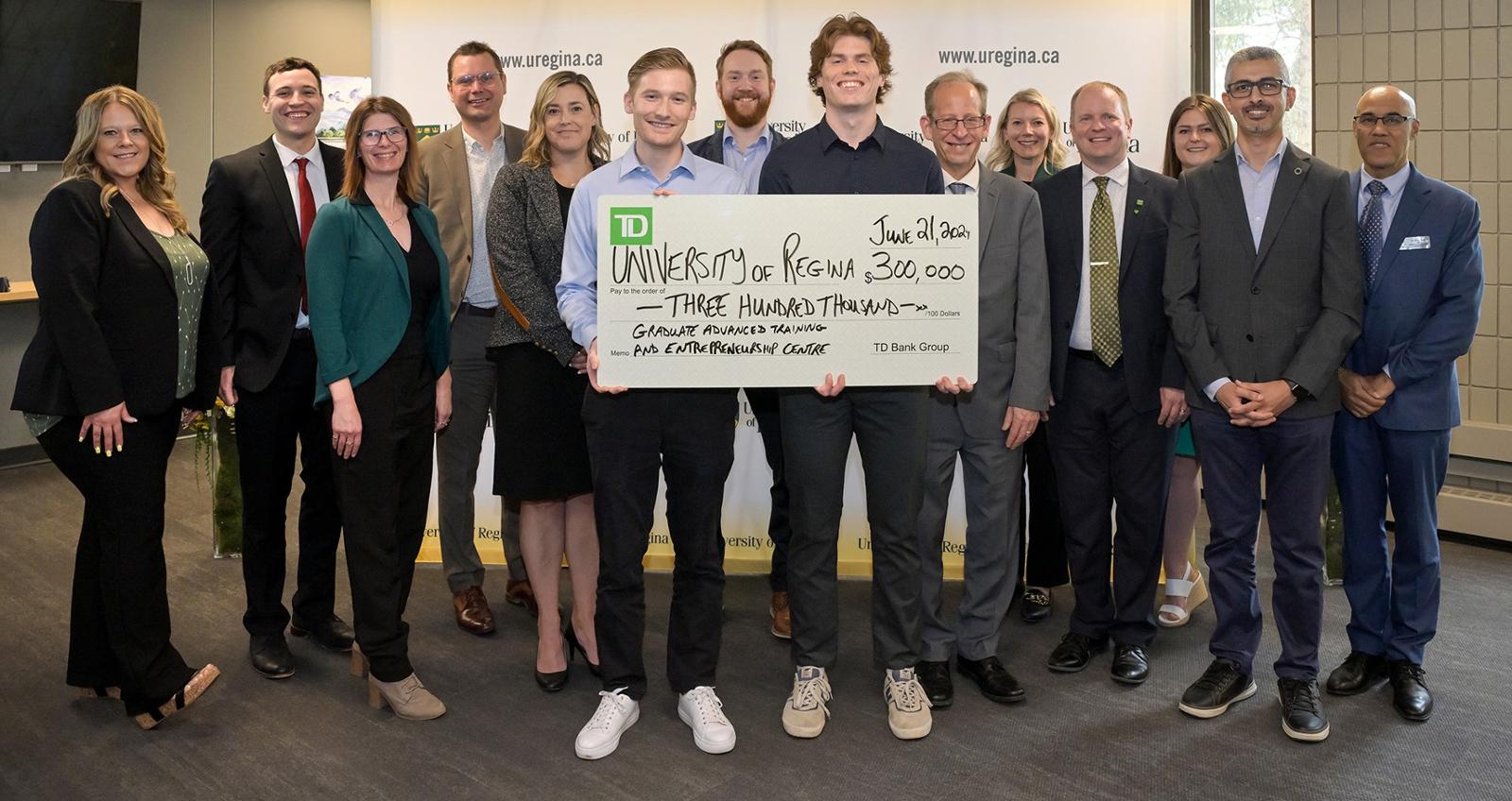In a quest to find the silver lining in the current restaurant labour shortage, University of Regina students are getting the opportunity to turn their passion for robots into a unique hands-on learning experience. Working with two robots from Ren Robots Inc., the students are gathering data and developing the management platform that will help the robots perform their service industry processes in safer and more efficient ways.
The research project is being led by Dr. Yili (Kelly) Tang, a professor in Environmental Systems Engineering. She is being assisted by Xinyu Liu, a master’s student in software engineering from the Faculty of Engineering and Applied Science, and David Elumeze, a fourth-year computer science student in the Faculty of Science. The objective of the project is to develop the real-time remote control and management systems that will enable various robot movements. A third student will join the team later in the semester.
The skills I have gained will benefit me greatly in my future studies and as someone who plans for a career in robotics, I am excited to apply these skills to create innovative solutions for real-world problems.
David Elumeze, fourth-year computer science student, Faculty of Science
“Getting a chance to learn on real robots that have real-world application in the service and restaurant industries is a terrific opportunity for these students,” Tang said. “They are gaining valuable experience in robotic mobility system operation and control while also developing their skills in everything from data analytics to project management.”
The unique research project includes creating the remote control algorithms, developing the software, and path planning for the robots, as well as utilizing artificial intelligence for image recognitions. The team will be using the robots to test their research and see if it could be successfully implemented in the service industry, performing tasks such as taking orders, delivering food, and cleaning floors, as well as communicating and interacting with customers. The deployment of robots in the service industry is intended to help address the ongoing restaurant labor shortage, and could be used in hotels with similar applications.
Looking to harness your methodical and creative mindset to engineer new systems? Find out how through the U of R Environmental System Engineering program.
“Since the start of the research, I have been immersed in the fascinating world of mobile-robotic systems, and I can only say that my passion for it has grown stronger,” said Elumeze, who brings database development to the project from his U of R co-op placement experience with Samsung Electronics and Canada Life.
“From working on this research, I’ve gained invaluable learning experiences, and had the unique opportunity to apply theoretical concepts from my computer science classes to real-world situations,” he said. “From setting up and mapping the robots to programming robots and analyzing the experiment's data, I have gained a deeper understanding of various algorithms, programming languages, and robotic systems.”
Leaning on her extensive experience in artificial intelligence and Java programming, Liu helped to develop the algorithms needed for the projects.
“During the robotics project, I learned a lot about hands-on programming, including remote work, usage of the robotics programming interface, and clever coding skills,” said Liu.
“It has also been an excellent opportunity to apply the knowledge I’ve gained at the U of R to practical work,” Liu added. “It helps you figure out what you're missing and teach yourself. In the end, I take great pride in seeing my code work and the robot move.”
Tang and her team will continue their research on robotic movement and gathering data until the project wraps up and they’re ready to provide their feedback, findings, and data to Jason Ren, CEO of Ren Robots Inc. Project findings will also feature cutting-edge research which will be disseminated through technical reports and publications.
Learn more about hands-on learning at the University of Regina Centre of Experiential and Service Learning.
“The skills I have gained will benefit me greatly in my future studies and, as someone who plans for a career in robotics, I am excited to apply these skills to create innovative solutions for real-world problems,” Elumeze added.
About the University of Regina
Set in the heart of the Canadian prairies we are a comprehensive, mid-sized university where the opportunities are as limitless as the horizon. Our campuses are on Treaty 4 and 6 - the territories of the nêhiyawak, Anihšināpēk, Dakota, Lakota, and Nakoda peoples, and the homeland of the Michif/Métis nation. It is our responsibility to strengthen relationships with Indigenous communities to build a more inclusive future for all. Our three federated colleges, 10 faculties, 25 academic departments, and 18 research centres foster innovative research with practical and theoretical applications. We are committed to cultivating the potential of our 16,000 students and supporting their health and well-being. We take learning beyond the classroom through work and volunteer experiences to develop career-ready graduates.
Let’s go far, together.




